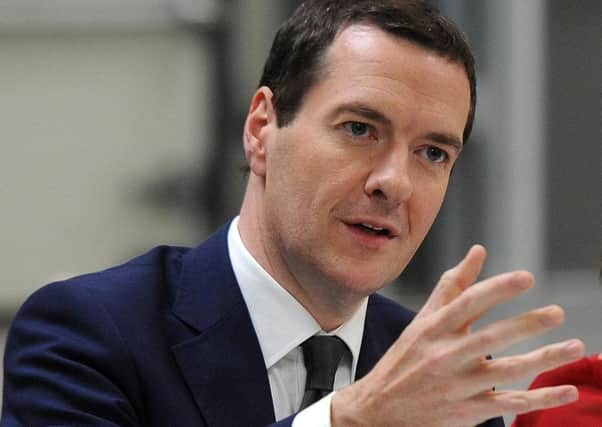Multi-million pound cuts announced ahead of Government’s Spending Review


Annual budget cuts of 8% over the next four years have been agreed by the Treasury, the Department for Transport and the Department for Communities and Local Government, and give a flavour of the scale of the reductions expected at the Spending Review on November 25.
Crucially for Yorkshire and other rural parts of the country, the Department for Environment, Food and Rural Affairs (Defra), will also have to shave 8% a year from its £2bn budget, which follows £83m worth of cuts announced in the summer.
Advertisement
Hide AdAdvertisement
Hide AdDefra lost 30% of its budget in the Comprehensive Spending Review in 2010 and more recent cost cutting measures have involved shelving a research project into urban seagulls and cutting administrative costs for arms-length organisations such as Natural England.
The announcement casts further doubt on more financial resource being made available when the Yorkshire Dales National Park expands next year.
The new budget reductions for all four departments will involve closing what the Government calls ‘low value programmes’.
Speaking at Imperial College in London, this morning Mr Osborne will explain how the Government is focused on ensuring economic and national security.
Advertisement
Hide AdAdvertisement
Hide Ad“It is only when you control spending, and live within your means, that you can build a country with security and opportunity at its heart.
“And that’s what the Spending Review I will present in a little over two weeks’ time, will be all about...”
The Department for Transport has already been set a target of saving £545m from its budget in 2015-16 and is responsible for overseeing the electrification of the TransPennine and Midland Mainline to improve connectivity in the North. The Department for Communities and Local Government, which alongside the Treasury is hoping to create further devolution deals in Yorkshire, was asked this summer to cut £230 from its £8bn budget.
The latest cuts do not affect capital spending, and Mr Osborne will be keen to stress today that the Government will spend £4 trillion over the next five years,
Advertisement
Hide AdAdvertisement
Hide AdHaving reached provisional settlements, Transport Secretary Patrick Mcloughlin, Defra Secretary Liz Truss and Communities Secretary Greg Clark will join the Chancellor around the table of at the Government’s Public Expenditure Committee next week.
Mr Osborne said: “We know that if we don’t control spending, we run the risk of higher mortgage rates and higher taxes – and a loss of confidence in our economy.
“And we know for certain that will mean job losses; it will mean businesses closing down; it will mean homes being repossessed. It will mean the livelihoods of working people destroyed.
“That’s why, at the Spending Review, we will meet the democratic mandate we were given by the British people this year: to bring the deficit down, finish the job, and get Britain back into surplus.
Advertisement
Hide AdAdvertisement
Hide Ad“With our plan, by 2019-2020, for the first time in a generation, Britain will be saving instead of borrowing; paying down our national debt share, rather than adding to it.”
The Prime Minister, David Cameron, will say later today at the Confederation of British Industry (CBI) annual conference in London, that the Spending Review is ‘all about putting the security of British families first’.
He will say: “By finishing the job of repairing our finances, we are able to provide economic security for working families at every stage of their lives, we are able to protect our national security and we are able to extend opportunity to all.
“That’s why it’s good news that today we can confirm four departments have provisionally completed their spending settlements. By making the further savings we need over the course of this Parliament we can prioritise what matters for working families - schools, the NHS and our national security.”